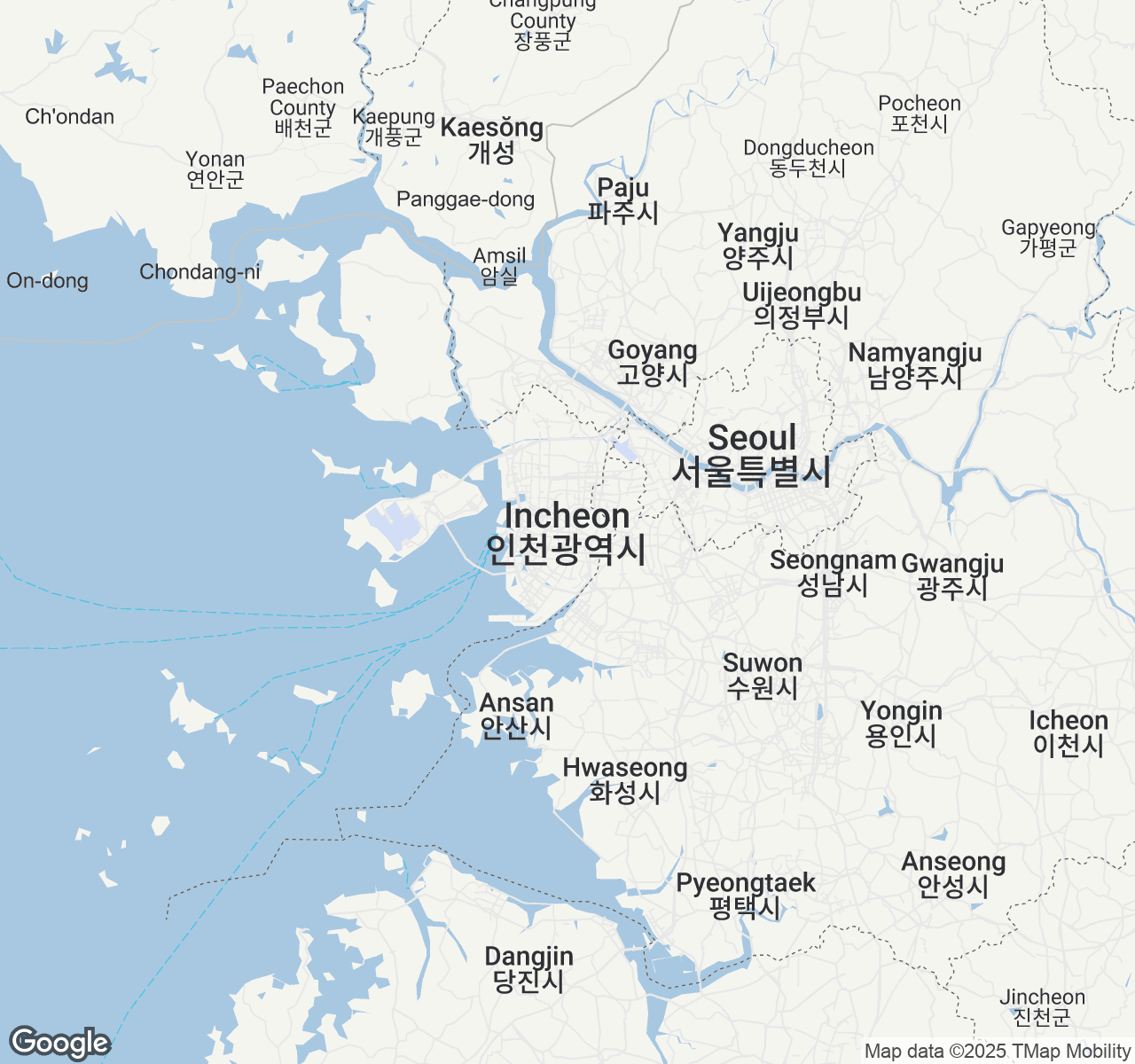
Things to Do in Incheon
Discover the best of Incheon
Plan Your Trip
Essential guides for timing and budgeting
Top Things to Do in Incheon
Discover the best activities and experiences. Book now with our trusted partners and enjoy hassle-free adventures.
Your Guide to Incheon
About Incheon
The Yellow Sea crashes into Korea's coast at Incheon, a port city that never stops moving. This isn't just Seoul's airport town—ancient fishing villages sit next to glass towers, and the ocean air smells of salt and ambition. Traditional meets modern here, hard. Chinatown's alleys reek of jajangmyeon and temple incense. The shopping districts sell whatever trend landed yesterday. On Wolmido Island, waves pound the shore while fish vendors work markets their families have run for decades. Bullet trains shoot toward Seoul while wooden fishing boats rock in the same harbors they've used for centuries. Every corner shows how Korea went from isolated kingdom to global player—and Incheon is where you see it clearest.
Travel Tips
Transportation: Take Airport Railroad Express (AREX) from Incheon Airport to Seoul Station (43 minutes, 4,750 won/$3.56). Local buses within Incheon cost 1,370 won ($1.03) with T-money card. Taxis to Chinatown cost 8,000-15,000 won ($5.99-$11.24).
Money: Exchange at airport or banks like Woori for rates around 1,335 won per dollar. ATMs at convenience stores charge 3,500 won ($2.62) fees for international cards. Budget 30,000-50,000 won ($22.47-$37.45) daily for meals and activities.
Cultural Respect: Bow when greeting and remove shoes when entering homes. Use both hands when receiving business cards. Learn basic Korean: 'annyeonghaseyo' (hello) and 'gamsahamnida' (thank you).
Food: Try jajangmyeon (black bean noodles) in Chinatown for 5,000-8,000 won ($3.75-$5.99) per bowl—it's the dish's Korean birthplace. Sample Korean-Chinese dumplings for 3,000-5,000 won ($2.25-$3.75) per serving. Soju costs 3,000-4,000 won ($2.25-$3) per bottle.
When to Visit
Incheon shines brightest during spring (April-May) when temperatures hover between 15-22°C and cherry blossoms paint the city pink, though expect 20-30% higher accommodation prices during peak bloom periods. Summer (June-August) brings sweltering heat up to 30°C and heavy monsoon rains averaging 300mm in July, but offers the lively Pentaport Rock Festival in August and lively beach scenes on Wolmido Island. Autumn (September-November) delivers perfect weather with crisp 10-20°C temperatures, minimal rainfall under 50mm monthly, and impressive foliage, making it ideal for exploring outdoor markets and coastal walks—though prices rise 15-25% during October's peak season. Winter (December-March) sees temperatures plummet to -5°C with occasional snow, creating magical scenes around traditional temples, while hotel rates drop 30-40% and crowds thin dramatically. The Incheon International Airport Ice Festival brightens January's chill. Budget travelers should target late November through February, while families prefer the mild shoulder seasons of late April-May and September-early October when weather cooperates without summer's oppressive humidity or winter's bitter winds.

Incheon location map